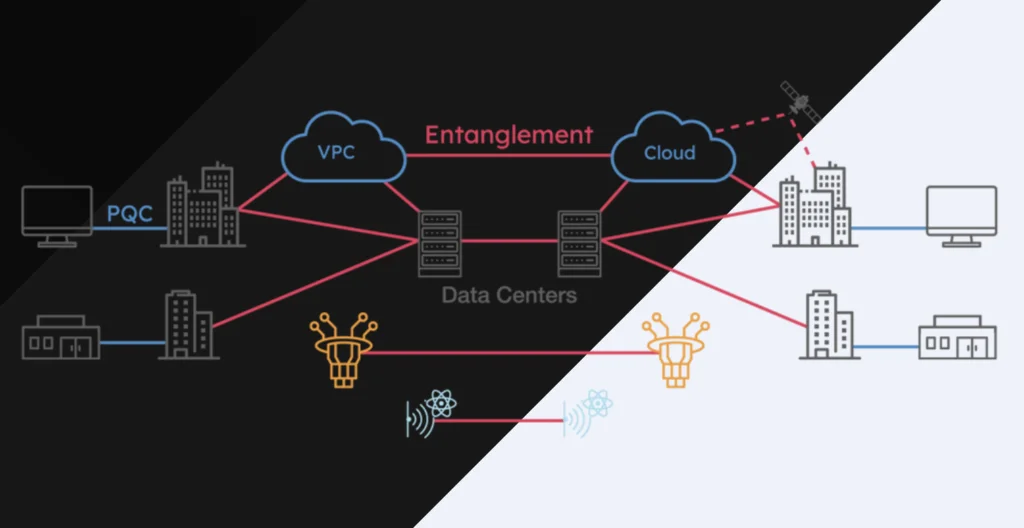
Let’s face it: Right now most people do not know the difference between a qubit and a Q-tip.
For quantum computing to reach its mass potential, the industry will need people who can communicate its advantages to a broad spectrum of consumers and entrepreneurs and people who can run and manage businesses.
This means that there is currently a growing segment of quantum computing jobs and quantum computing job categories for non-scientists and, if the quantum industry growth projections are correct, companies will create even more quantum computing jobs for non-scientists.
Similar to the article on quantum computing jobs, this piece will look at possible quantum computing job categories for non-scientists along with potential starting salary ranges. The salary ranges, admittedly, are – perhaps wild – estimates based on figures gathered from the web.

Top Quantum Computing Jobs for Non-Scientists
Marketing and Public Relations
For quantum computing to be successful, the message must be distributed to people who can use the technology. Several quantum companies either are starting to create their go-to-market strategy, or have implemented it. Market strategies for quantum will be a heavy lift, requiring a team of marketers and public relations specialists who can use effective communication strategies to create and distribute messages about the benefits of quantum technologies to a public that largely does not understand quantum science.
Quantum computing jobs in this category would include marketing and public relations professionals, as well as marketing research specialists, digital marketing experts and media outreach team members.
The starting salary range for this category is estimated to be between $35,000 to $65,000.
Community Relations
The quantum technology industry is not a standalone system – it is an ecosystem with developers, physicists, engineers, programmers, and more. Coalescing these disparate groups into a thriving community creates a quantum computing job in community relations.
These workers will find and meet people from the various constituencies of the quantum ecosystem and turn them into partners, champions and customers.
We can also add events management in this section, too, because the quantum industry is not immune to the tech fields love of trade shows and other events.
The starting salary range for this category is estimated to be between $45,000 to $75,000.
Sales Professionals
Closely aligned with marketing and PR, sales professionals will be a highly sought quantum computing job as the industry matures and broadens.
At least for the foreseeable future, many companies and multiple modalities will compete in the quantum computing market. The winner may not be the company that has the best technology, but the one that is able to “sell” itself to more customers.
While the academic and scientific roots of the quantum industry may resist it, sales will be an important quantum computing job and we would expect sales professionals to start in the $100,000 to $125,000 range, among other forms of compensation, such as commissions.
Science Communicators
Deeptech companies, such as quantum startups, are a unique blend of academic, research and commercial operations. As quantum startups will, no doubt, regularly produce research – studies, reports, and white papers – they will create quantum computing jobs for science communicators who can take technical information and translate it to the public, funding agencies and business end users.
The starting salary range for science communicators is tagged at between $45,000 and $75,000.
Business Development
Many of the teams leading quantum computing startups and companies are transitioning from a purely academic model, which is based on grants and contracts, to a commercial model, which is driven by profit. This trend is creating more quantum computing jobs in the business development category. These jobs will be filled by people who can create and execute strategies designed to build and maintain partnerships and collaborations to benefit a growing – perhaps fast growing – business.
We would expect salaries in this category to range between $95,000 and $115,000 per year.
Business Management and Leadership
There are a few paths to management and leadership positions in quantum computing. Certainly, the most prevalent way is for quantum scientists to start their own companies based on technology they develop.
But, increasingly, those CEO or executive quantum computing jobs are being filled by candidates outside of academia, and even outside of the quantum computing field. In most cases, these new executives are coming from other areas of tech, but are not necessarily scientists.
We would expect a starting salary to be in the $150,000 to $175,000 range with additional compensation in the form of equity and stock options.
Human Resources
Building the quantum team might be the easy part – maintaining high-performing, academically driven teams will be the challenges. One quantum computing job that will help with both of those challenges is human resource professional, or, often, talent management.
HR professionals in quantum tech may not understand quantum science, but they do know how to find, hire and motivate talented quantum science teams.
We expect quantum computer companies to pay starting salaries in the $85,000 to $125,000 range for qualified candidates.
Diversity, Equity, Inclusion
Leadership from the quantum industry has witnessed the dumpster fire of equity issues in the tech industry. And they want to avoid it — and the resulting lawsuits and bad press.
They also recognize that a tight labor market means casting a bigger, broader net for workers around the world.
Expect more quantum computing jobs to be created in the diversity, equity and inclusion – DEI – space.
Starting salaries for this quantum computing job is in the $75,000 to $95,000 range for qualified candidates.
The Quantum Insider keeps a close watch on upcoming quantum computing jobs and opportunities on our job board.
Find out more about Top Quantum Computing Jobs.
For more market insights, check out our latest quantum computing news here.















